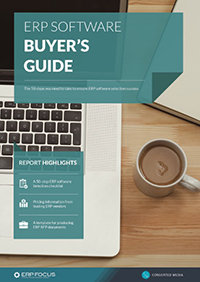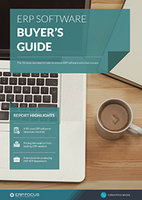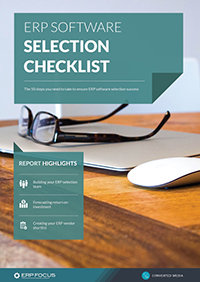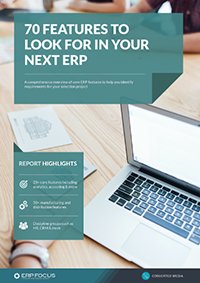ERP vs. HRMS: which should manage your payroll?
Everybody knows payday is the best day of the week. In addition, the most-liked person in any organization is the one who prepares the payroll. What is the better tool: ERP or HRMS?
HRMS advantages
Most HRMS systems come with an assortment of handy, useful tools such as employee appraisals, loan balance and payment calculations, miscellaneous deductions, and time off balances. Do you need help attracting new employees?
Maybe your staff needs some motivation. How about legal help with employment laws and regulations? Your annual employee performance reviews are coming shortly. Many HRMS systems have the answers you want to find. Generally, these tools are easy to use and user-friendly too.
HRMS disadvantages
What is not to like? A big disadvantage of most HRMS systems is that they are stand-alone and not integrated with your ERP, the central repository for business data.
For instance, when allocating an employee's time to a specific project, you can add the project code easily to HRMS, but you still need to use the total page of the HRMS report to justify a journal entry. On the other hand, that project exists in ERP, and the accounting for that person’s time is handled completely within the ERP.
Integration challenges
You certainly can develop your own integration or hire someone to perform the work. Your HRMS and ERP salespeople probably told you how easily and quickly this can be accomplished. Check with your own IT staff, and you likely will learn it is not a simple task and they already have competing priorities that can delay or complicate the process.
Find the features your new ERP system needs with our free ERP features guide
ERP for payroll management
ERP systems are capable of accurately processing payroll, with staff already familiar with their interfaces and workflows. ERP payroll is 100% integrated with accounting and project management with no additional work. Some of the features that make HRMS attractive are already contained in your ERP. Check with your ERP provider and other features might be available for a small cost.
Bottom line
Deciding between ERP and HRMS for payroll management depends on your organization's specific needs and resources.
Both systems offer distinct advantages and disadvantages. Evaluating the benefits and costs associated with each option will guide you to a solution that offers more efficient payroll processing while supporting your organization's broader operational goals.
Automation also plays a crucial role in modern payroll management. By selecting a system that minimizes manual data entry and reduces administrative burdens, organizations can improve accuracy, enhance compliance, and free up HR teams to focus on strategic initiatives.
Free white paper

ERP software buyer's guide
Save hours of ERP selection research with this comprehensive buyer's guide

Featured white papers
-

60-Step ERP Selection Checklist
Get the comprehensive checklist for your ERP selection project
Download -

ERP software buyer's guide
Save hours of ERP selection research with this comprehensive buyer's guide
Download -

70 features to look for in your next ERP
A comprehensive guide to help you identify requirements for your ERP selection
Download
Related articles
-

Top ERP systems for small businesses
Which ERP solutions are best for small business needs? Information on features, scalability and m...
-

CMMC Compliance: What Aerospace and Defense Manufacturers Need to Know
Key insights on CMMC compliance, deadlines, and securing DoD contracts with CMMC 2.0 certificatio...
-

A case study on finding the right ERP consultant
A fictional case study on the impact of hiring the right ERP consultant

